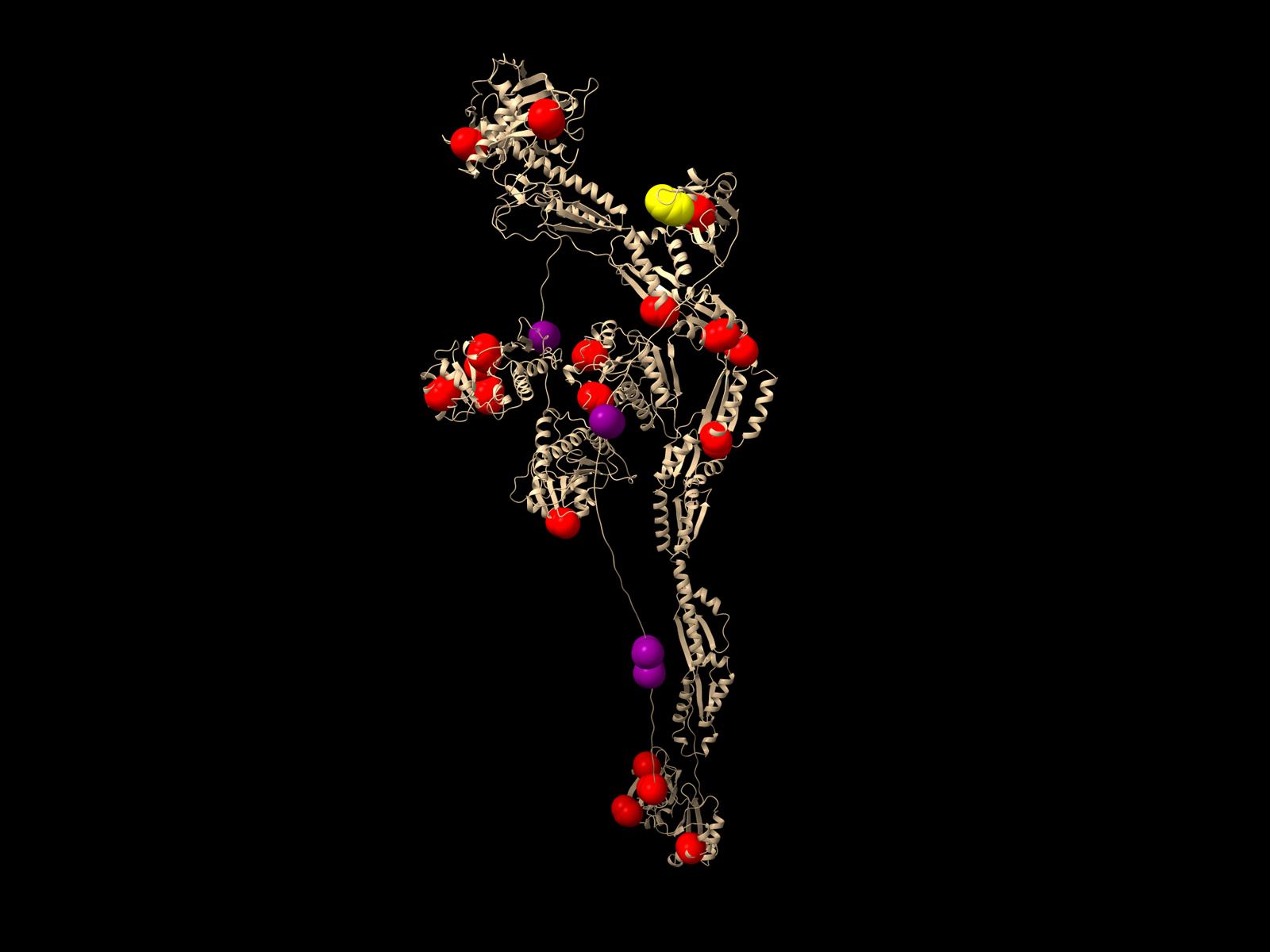Researchers Develop New, Integrative, and Automated Approach to Identify Multiple Types of Protein Modifications
Flexible, high-throughput proteomics approach identifies protein modifications related to pancreatic stress and insulin production

Researchers develop a new approach to identifying modifications on proteins that indicate changes in the cellular process.
(Image courtesy of Tong Zhang | Pacific Northwest National Laboratory)
The Science
Cells contain thousands of proteins whose functions are affected by different types of modifications—even on the same protein. These modifications, termed post-translation modifications (PTMs), regulate cellular processes like stress response. PTMs provide important measurements for understanding cellular phenotypes such as insulin secretion by healthy pancreatic cells or dysfunction in diabetes. Proteomics allows researchers to simultaneously measure proteins and PTMs; however, approaches that are compatible with analyzing multiple types of PTMs are lacking. As part of the Predictive Phenomics Initiative, scientists developed an automated approach for measuring three types, leading to the discovery of new PTM co-occurrences on proteins.
The Impact
This new automated approach enables application of multi-PTM proteomics to large clinical trials and serves as a platform for collecting behemoth-sized datasets to advance artificial intelligence and machine learning (AI/ML) applications. These data will help establish a fundamental understanding of how PTMs affect protein structure and functions, and the technique will help develop diagnostics for early detection and better therapeutics of human diseases.
Summary
Pro-oxidants like hydrogen peroxide are an important component of the immune system’s response, but when their production is dysregulated, they can cause cell death and chronic inflammation. Pro-oxidants react with cellular components such as proteins, causing a type of protein oxidation called “redox PTMs” that can affect protein activity, function, location, and stability. Redox and other types of PTMs such as phosphorylation and acetylation form a mechanism that cells use to respond to environmental conditions. Cellular abnormalities underlying diseases arise partially due to errors and dysregulation of PTMs.
Studying different types of PTMs from the same sample is tricky because many PTMs are scarce and prone to artificial changes during protein extraction. This is especially true for redox PTMs, which require optimized steps for initially “freezing” reduced vs. oxidized protein states. Researchers tested the compatibility of an automated procedure to remove excess chemicals used for breaking open cells, extracting proteins, and “freezing” redox PTM states. After cleaning the samples, the researchers used a streamlined labeling approach to reduce the number of samples by 18-fold, allowing them to split samples to analyze redox, phosphorylation, and acetylation PTMs. Their work presents a flexible, high-throughput approach for studying PTMs in tissues and cells.
Contacts
- Tong Zhang, tong.zhang@pnnl.gov, PNNL
- Wei-Jun Qian, weijun.qian@pnnl.gov, PNNL
Funding
The research described in this paper is part of the Predictive Phenomics Initiative at Pacific Northwest National Laboratory (PNNL) and conducted under the Laboratory Directed Research and Development Program. PNNL is a multiprogram national laboratory operated by Battelle for the U.S. Department of Energy under Contract No. DE-AC05-76RL01830.
Published: June 2, 2025
Gluth, A. et al. Integrative Multi-PTM Proteomics Reveals Dynamic Global, Redox, Phosphorylation, and Acetylation Regulation in Cytokine-Treated Pancreatic Beta Cells. Molecular & Cellular Proteomics 23, 100881 (2024). [DOI: 10.1016/j.mcpro.2024.100881]